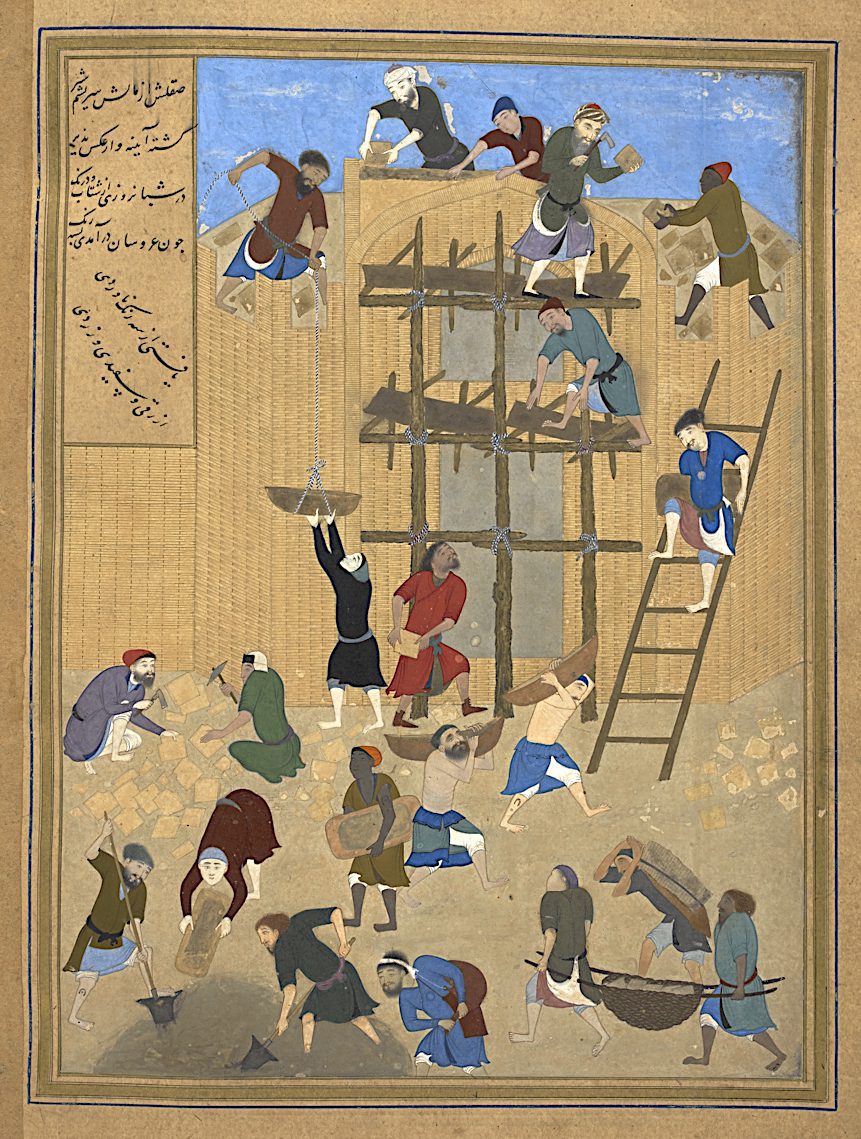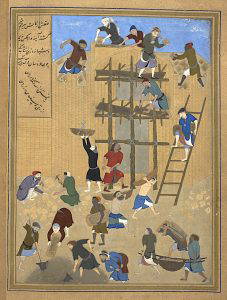Persian Manuscripts between East and West: Britain, India and the Circulation of the Persianate Literary Heritage
Project Summary
Britain holds some of the most important collections of Persian manuscripts in the west. Despite scholarly interest in these collections dating back to the seventeenth century, they continue to hold numerous unpublished or little studied texts, and constitute a major source for both the intellectual and artistic history of the Persianate world. Relatively little is known of how such collections were formed. Yet recent scholarly and public interest has shown the importance of understanding the trajectories by which such objects ended up where they are now, as well as contributing to a clearer understanding of the context in which these manuscripts currently exist. For many of the manuscripts held in British collections are not haphazard, unrelated acquisitions with no connection one another, but rather in fact constitute coherent, if incompletely preserved, libraries in their own right. These collections contain numerous manuscripts copied for earlier owners in India, Iran and Central Asia, who can be identified by ownership statements, seals, and dedications. Research on the provenance of these collections thus offers insights not just into colonial acquisition of manuscripts, but the intellectual culture of Muslim courts, and the pathways by which these manuscripts reached these courts.
This project aims to reach a new understanding of the British engagement with Persian manuscript culture through studying British collections of Persian manuscripts, and the British role in forming Indian collections. It thereby will contribute to a more nuanced public debate over questions such as the origins and restitution of colonial artefacts by highlighting the complex histories of these manuscripts even before they reached British hands. It will also contribute to an enhanced understanding of Islamic intellectual culture, especially at early modern Indian courts, and of European engagement with the Persian written heritage. The project aims both to bring together existing research being conducted in isolation, and to contribute new research. It will address the following questions:
- How were British collections of Persian manuscripts formed? What role did colonial administrators and collectors play, to what extent are these collections formed through plunder, purchase or exchange?
- To what extent do these collections reflect the personal tastes of British collectors? What Persian texts did British and European patrons have copied and composed?
- What is the history of these collections before they reached British hands? What discrete pre-colonial libraries and collections survive, albeit partially?
- What can we learn about the circulation of these manuscripts in pre-colonial times from seals, ownership statements and notices of sale that they frequently contain? How do Persian manuscripts circulate between Iran, Central Asia and India? What texts are read at Indian courts, in particular the Mughal court as represented by the Delhi collection, but also other collections?
- What role do British colonial authorities and the British auction market play in the formation of collections of Persian manuscripts in India?

Research Team
Prof Andrew Peacock
Project principal investigator.
Bishop Wardlaw Professor.
University of St Andrews.
Dr Ursula Sims-Williams
Project co-investigator.
Lead curator, Persian Collections.
The British Library.
Dr Mahmood Alam
Project co-investigator.
Assistant Professor in Persian.
English and Foreign Languages University, Hyderabad.
Project Events
Workshop: Persian Manuscripts Between East and West, November 2023
Indo-Persian and Persianate Manuscripts in Britain: Provenance and Collection
BIPS Flagship Research Project ‘Persian Manuscripts Between East and West’
Ancient India and Iran Trust, Cambridge, 3 November 2023
The workshop is open to the public by prior registration is required at info@indiran.org. Registrations are open until 30 October 2023.
9.20-9.30AM Introduction
9.30-11.00AM Panel 1
James White – Collecting in the Mid-Seventeenth Century: The Thompson-Hyde Network
Charles Melville – From Oudh to Christ’s – the tortuous peregrinations of the Hutton collection of Oriental manuscripts
Catherine Ansorge – An Arabian Nights manuscript and its journey to Cambridge
10.45-11.15AM Coffee/tea
11.00-12.45AM Panel 2
Christopher Bahl and Jake Benson – Colonel George Hamilton and his networks- collector, commissioner and connoisseur of Arabic and Persian manuscripts in nineteenth century South Asia
Vivek Gupta – Archives in the Air: A Lucknow Lady’s Songs and Colonel’s Library Reunited in Cambridge
Ursula Sims-Williams – A 19th century cleric in South India: the collection of Thomas Robinson, Archdeacon of Madras and Lord Almoner’s Professor of Arabic at Cambridge.
12.45-2PM Lunch and viewing of AIIT Persian manuscripts
2-3.30PM Panel 3
Michael Willis – Arabic Manuscripts in the Bijapur Library: Otto Loth and Beyond
Lucy Deacon – John Baillie of Leys and the Edinburgh fragment of Rashīd al-Dīn’s Jāmiʿ al-tawārīkh
Andrew Peacock – The Dunimarle Collection
3.30-4.00PM Coffee/tea
4-5.30PM Panel 4
Firuza Melville – The Cambridge Hilali and its decoration programme
Sheida Heydarishovir – A Closer Look at the Delhi Collection
Yasmin Faghihi – Investigating the origins of Islamicate manuscripts using computational methods
5.30PM Closing remarks
5.40-7PM Reception hosted by the Ancient India and Iran Trust
The workshop is financed by BIPS with the support of the Sufi Manuscript Cultures research project
